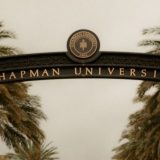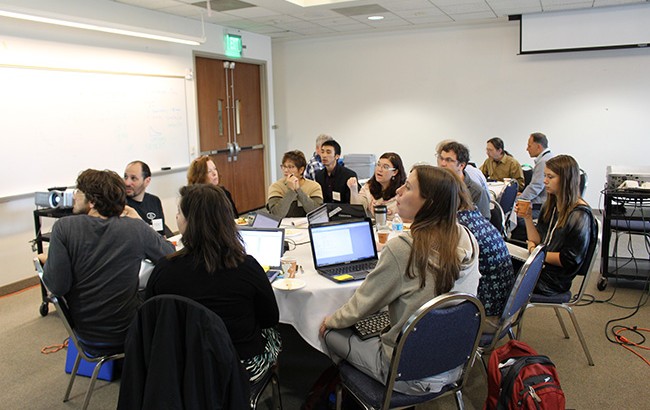
Big Data, Big Discoveries: Nonlinear Datapalooza Event
February 9, 2015
Living in a world of big data and discovery, individuals are prone to ask the question, “What do I do now?” You may have spent hours collecting the data, though it may also be very overwhelming, leaving you with many unanswered questions.
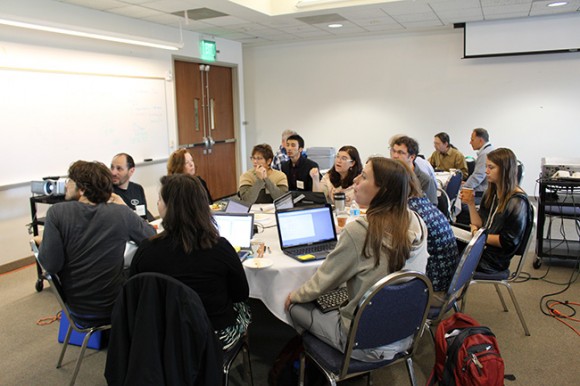
In the first non-didactic conference of its kind,
Datapalooza was held by the Society for Chaos Theory in Psychology and Life Sciences
at Chapman University. Crean College’s, Dr. David Pincus spearheaded the event and served as the conference chair. As Dr. Pincus states, “At Datapalooza, there is no hierarchy, no finished work, and no boundaries to forming new collaborations and learning new methods. As the name suggests – the Nonlinear Datapalooza is all about getting together to analyze data.”
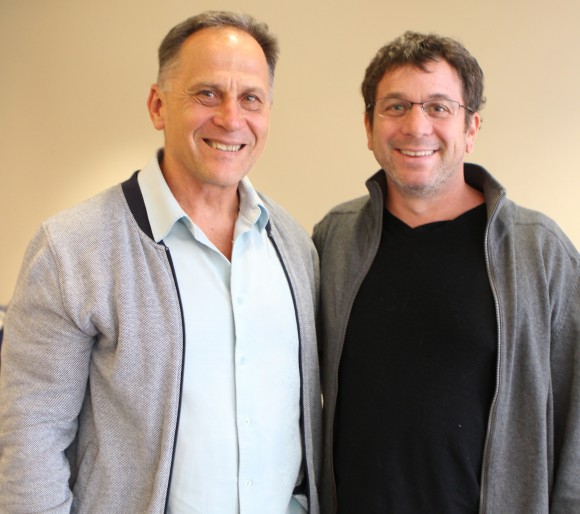
A practicing clinician who holds a Ph.D. in clinical psychology, Dr. David Pincus understands the importance of marrying different sectors of study to come up with discoveries and conclusions that have never been seen.
Previous to the conference, graduate students, researchers, business owners, and professors have spent countless hours researching and collecting data on causes passionate to them. Areas such as second hand smoke interventions, understanding social power and structure, motor learning in infants, and children with Autism were just a few of the studies presented to method experts. Individuals such as Stephen J. Guastello, PhD., Jonathan Butner, PhD. David Pincus, PhD. and Adam W. Kiefer, PhD., were just some of the method experts who guided these groups through the analysis process.
In one example, women in perimenopause were monitored on three variables including social activity, stress, and fatigue. The variables were studied to assess why women have varying outcomes of this stage of life and that each variable will not remain at the same data point when measured. As Dr. Pincus stated, “We are looking at the idea that stress and fatigue will not remain at zero, unless you are dead.”
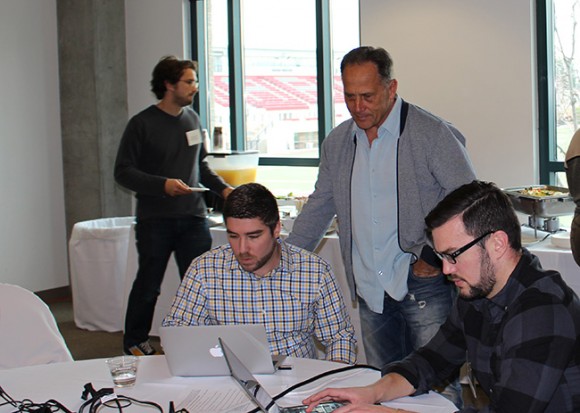
A participant and former Mr. Universe, Ken Ware, founder of Neurotricional Sciences attends the conference from Australia with hopes of understanding his patients better. With a mind for research and a passion to help rehabilitate people with spinal cord injuries, Ware has years of experience. One of his patients is
John Maclean, a former athlete turned paraplegic for 25 years. After going through ‘WareK Tremor therapy,’ John Maclean is walking again. Overcome by the success and possibilities of his patients, Ken Ware understands the necessity to keep pushing forward and solidify his techniques with hard proven data.
After providing his interesting and complex information, Ware has two teams of people helping to get the right solutions, “Not something I could do myself.” Ware explains:
“We deal with famous athletes in Australia. They come to us with serious injuries that some therapists have not been able to deal with. We are able to get them better within a short time scale with our techniques. Because of that and because of the impact it has on other therapies, people are asking, “What are these guys doing?” “How are they getting people well?” We need to have a good data analysis, which is why I am so grateful to be connected to these guys. They are the best in providing that information for publications.”
This mode of thinking has inspired graduate student Justin Huft, of
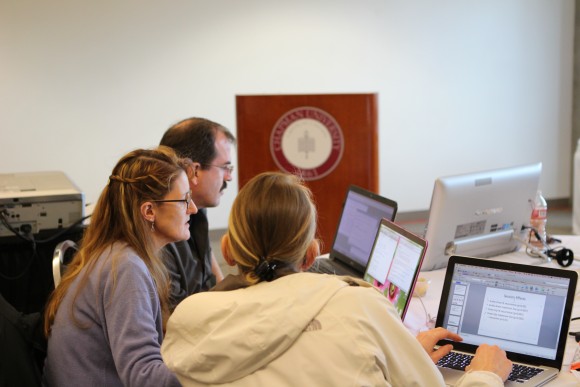
Chapman’s Marriage and Family Therapy Program to expand his educational learning and incorporate nonlinear dynamics to his mode of study. Encouraged that Dr. Pincus has taken him under his wing, Justin expresses that:
“My experience has been awesome! It has been enlightening and awesome seeing people from all these other areas. It’s not like we are all therapists or mathematicians. Most of these people are not mathematicians, yet everyone is coming together using mathematics to figure out things and figure out things better. It has been exciting with these new learning opportunities.”
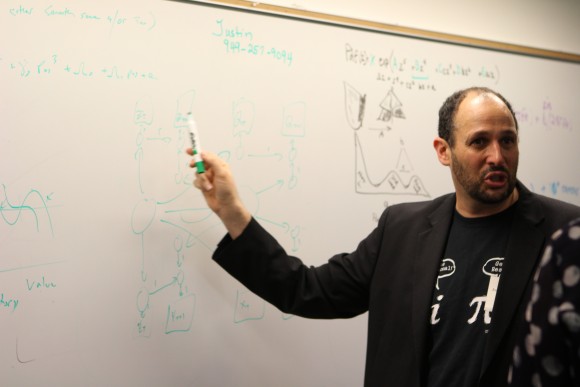
Just like student Justin Huft, undergraduate student Katie Wann, studying to be a
Clinical Psychologist, sought out a research opportunity. As the student liaison of the conference, in charge of helping guests get around during their stay. In addition to this, she studied the statistical analysis program, SPSS (Statistical Package for the Social Sciences) and assisted in running analyses for a group doing research on rhesus macaque monkeys. This study measured fighting patterns in monkeys and to essentially answer where aggression is drawn towards. The study noted that those who monkeys who were more submissive in nature had less fights overall. On the other hand, monkeys who tended to be more dominant had both a higher and lower propensity to fight.
Katie had the opportunity to present during the conference. In her own words, she explains how the conference is vital to her own pursuits:
“Applying for PhD programs, in a doctorate program, you have to have a pretty good knowledge of statistics. This is definitely a different branch of statistics, so it gives me more real life experience that will be more applicable for school and life in general. “
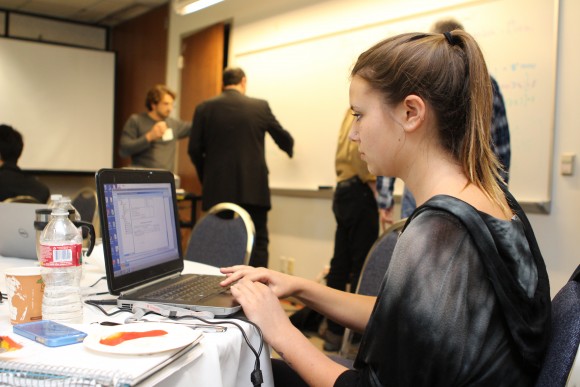
Realizing where one man’s weakness is another man’s strength, collaboration in the sciences makes it essential for studies to advance and develop. In this forum through the Society for Chaos Theory in Psychology and Life Sciences and Chapman University, students, researchers, professors, and industry leaders were given the opportunity to collaborate and expand on their knowledge.
Dr. Pincus states that the research analyzed at the conference has the potential to be published in top tier journals, marking this event as just the beginning of what is to come in the approaching years of data analysis.

